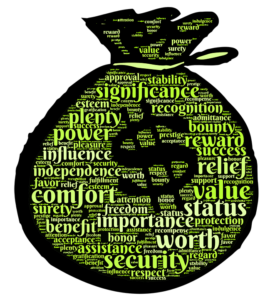 I am currently taking a Behavioral Finance course from Duke University. I am interested in the whole psychology of why we make the financial decisions we do, and am hoping it gives me greater insight into the decision-making process when it comes to how we (me included) spend our money.
I am currently taking a Behavioral Finance course from Duke University. I am interested in the whole psychology of why we make the financial decisions we do, and am hoping it gives me greater insight into the decision-making process when it comes to how we (me included) spend our money.
A big component that affects our willingness to spend money concerns the principle of loss aversion. A simpler way to describe this is how people differentiate between cost and loss. Economically, they’re the same thing, but how we account for them mentally is very different. For example, when we buy a big ticket item such as a car, we commit to spending a large amount of money. If the car salesman then tells us that we can add a touch screen in the back of the car for the kids for an extra $500, it doesn’t seem like a big deal because, hey, we’re already spending $25,000. So what’s another $500 added on to the total, right?
But six months later, if your spouse wants to add some other feature to the car that will cost $500, you’re most likely going to say “no, we’re not spending that money.” While the $500 cost added on the day you purchased the car didn’t feel like a lot of money, six months later spending that same amount feels wrong. This is an example of how we use mental accounting to essentially make behavioral cost mistakes. It wasn’t a big deal the day $25,000 became $25,500, but six months later that same $500 is seen as a loss in the family budget.
The term for this thought process is called “heuristic.” Heuristics are essentially biases or mistakes that people make when decision-making. If spending an additional $500 six months later is not economically sound, then that same thought process should have been utilized the day the car was purchased.
Unfortunately our brains are wired to look at cost and loss in different ways. A different example illustrates how our brains process risk. Say you bought a ticket for a reverse raffle for an organization you support. All the tickets but two have been pulled and you are still in the running for the big cash prize. The other ticket holder asks you if you want to go together and split the jackpot. Do you settle for half the pot, which is a sure cash guarantee, or decline and hope you get the whole jackpot?
Risk and loss aversion are important components influencing how we choose to manage our finances, whether that’s through purchasing, investing, or saving. The more you understand about the psychology behind your decision-making process, the happier you will be with the outcomes of your choices.

